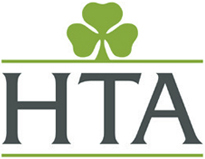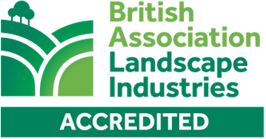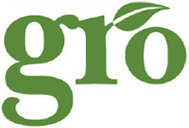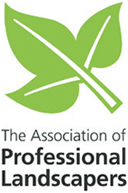Birds & Bees Wildflowermat (90/10 Native Flowers/Grasses)
Pricing options will be displayed when a postcode has been entered aboveBirds & Bees Wildflowermat (90/10 Native Flowers/Grasses)
Suitable for:
• Attracting A Wide Variety of Wildlife
• Creating Rich Biodiverse Areas
• Long Flowering Period
• Maximum Colour – Minimum Maintenance
• Wildflower Turf
• Green Roofs
A stunning, vibrant mix of native flowers and grasses that will encourage a wide variety of birds and
insects into your garden. Blended specifically for garden birds and bees, our Birds and Bees
Wildflowermat, with a blend of 90/10 native flowers and grasses, has been chosen to provide a
flowering period that actively supports biodiversity, encouraging a wide variety of birds, bees, and
other pollinators. Birds & Bees Wildflowermat has also been designed to fill your garden with
vibrant, colourful flowers throughout the spring and summer months, giving you the opportunity to
watch wild creatures going about their everyday lives.
Key Facts:
• 90/10 Native Flowers/Grasses.
• A vibrant colourful mix of perennial, annual and bi-annual plants.
• Flowering Times: March– September (depending on local weather conditions).
• Stunning flower varieties in shades of yellow, white, blue, pink, red and purple.
• Requires cutting back once a year, with no other maintenance required
• Suitable for most ground applications, although a low fertility soil is preferred.
• Standard turf mat size is 2000mm x 500mm which equates to 1m2.
• The normal weight of Birds & Bees turf is 24Kg per square metre (per roll), although this may vary according to moisture levels. We therefore recommend having two people to install it.
• We recommend laying onto a 150mm minimum depth of low nutrient soil. please click link below
Low Fertility Topsoil
Key Benefits:
• Birds and Bees is a vibrant colourful mix which contains mostly perennial plant species. Install it once and the plants will grow back year after year.
• Not all of the flowering species are perennial. We’ve included some annual and bi-annual plants too. These may not appear every year, but when they do, they will bring a welcome surprise.
• A long flowering period, March to September, which provides a plentiful supply of pollen and nectar for birds, bees, butterflies, hoverflies and moths all through the spring and summer months and well into autumn.
• Flowering Times: March – September (flowering times will be dependent on your soil type and local weather conditions).
• Birds & Bees Wildflowermat creates a hugely valuable wildlife habitat for a wide selection of small mammals, birds, bees and pollinating insects.
• Birds & Bees Wildflowermat is trimmed before dispatch to minimize any damage to plants during transit. Therefore, it will not be in flower when delivered.
• To enjoy flowers in its first flowering season, you must install Birds & Bees before the end of March so that the plants have time to establish prior to summer flowering.
• The balance of plant species in Birds & Bees, is influenced by the local micro climate, weather conditions, plant management and pollinator populations. It’s a truly biodiverse and natural evolving, adaptable product, which will change appearance from year to year.
• Very easy to install, the ground stabilising mat is pre-populated with living plants. Simply prepare the ground as instructed, unroll, peg down (if on a slope) and water frequently until plants and roots are well established.
• Birds & Bees is an important source of food for caterpillars and therefore a vital part of butterfly and moth life cycles.
• Birds & Bees will produce an abundance of autumn seed heads producing a ready supply of insects and larvae for birds.
• The mass of wildflowers will suppress annual weed seeds and helps stop weeds from germinating.
Where to Grow Birds & Bees Wildflowermat?
Birds and Bess Wildflowermat is suitable for a wide range of soil conditions but prefers to grow in full sun and moist, but well drained low fertility soil. It is happy on level surfaces or slopes and prefers a fairly neutral pH (7.0), but will tolerate all but the most acidic or alkaline soils.
Low Fertility soils help limit soil nutrients allowing wildflowers to establish and thrive with minimal competition. The low nutrients help to prevent grasses from becoming over vigorous, whilst also restricting the growth of other dominating plants so that they do not outcompete the wildflower plants in Wildflowermat.
For best results, lay your Birds and Bees Wildflowermat onto 150mm of our Low Fertility Soil, which has been especially formulated for growing wildflowers. To learn more about our low fertility soil please click link below:
Low Fertility Topsoil
Wildlife Friendly!
Birds and Bees is grown outdoors on a wildlife friendly plant nursery. We actively encourage birds, insects and other creatures to share the benefits of the plants as they grow. We do not normally use Pesticides and Weedkillers in any wildflower turf production.
What is Wildflowermat?
Our Wildflowermat is an ingenious outdoor wildflower turf that helps you grow a mature wildflower meadow in the least time possible. It’s far more reliable than sowing seed and much quicker and easier than plug planting. Think of Wildflowermat as a flower garden on a roll. You lay it in a similar way to lawn turf, but maintain it like a wildflower meadow.
How to Install & Care for your Wildflowermat.
Easy to look after, once Birds and Bees Wildflowermat has established, it can be left to grow unchecked all through the spring, summer and autumn months. There’s no need for mowing, feeding, deadheading or pest control, Mother Nature will take care of everything for you. Towards the end of winter, (usually late February) or when all of the seed heads have been eaten by birds. Cut your plants back to a height of 10 – 15 cm and take away all of the clippings. Sometimes, during a wet mild summer, you may find that some of the plants fall over – if this happens, simply trim them back to tidy them.
What Seeds are In Birds and Bees Wildflowermat?
Percentages refer to the weight of the seed in the growing mix and do not necessarily reflect the proportions of mature plants.
For a colourful display that provides lots of pollen and nectar to support beneficial insects all the way from early spring to late autumn.
• Agrimony
• Autumn hawkbit
• Birdsfoot trefoil
• Bladder Campion
• Chicory
• Clustered bellflower
• Columbine
• Common mallow
• Common sorrel
• Common toadflax
• Cornflower
• Daisy
• Fennel
• Field poppy
• Fox and Cubs
• Foxglove
• Grandmothers Garden
• Greater Knapweed
• Harebell
• Maiden pink
• Meadow buttercup
• Meadow cranes-bill
• Musk mallow
• Purple loosestrife
• Ragged robin
• Red campion
• Red clover
• Sheeps bit
• Small scabious
• Tansy
• Teasel
• Viper’s bugloss
• White campion
• White clover
• Wild Basil
• Wild carrot
• Wild clary
• Wild marjoram
• Wild pansy
• Wild thyme
• Yarrow
Purchasing Options:
• This product is sold by the square meter (m2), Wildflowermat rolls generally measure 2m x 0.5m which equates to 1 sq.mt, but can vary depending on the cutting machine being used.
• There is no minimum order quantity, however delivery will be on a pallet, which can take up to 50 wildflower turf. So the please try to order as close to a full pallet as you can to keep the pallet delivery costs down.
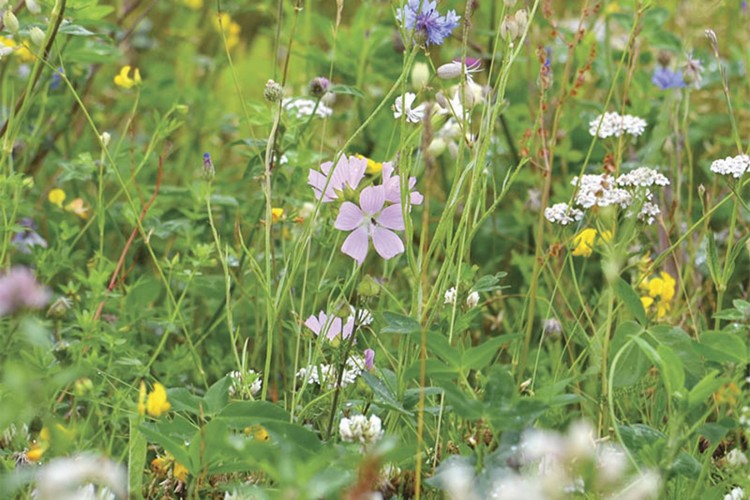
-74x74.jpg)
-74x74.jpg)



